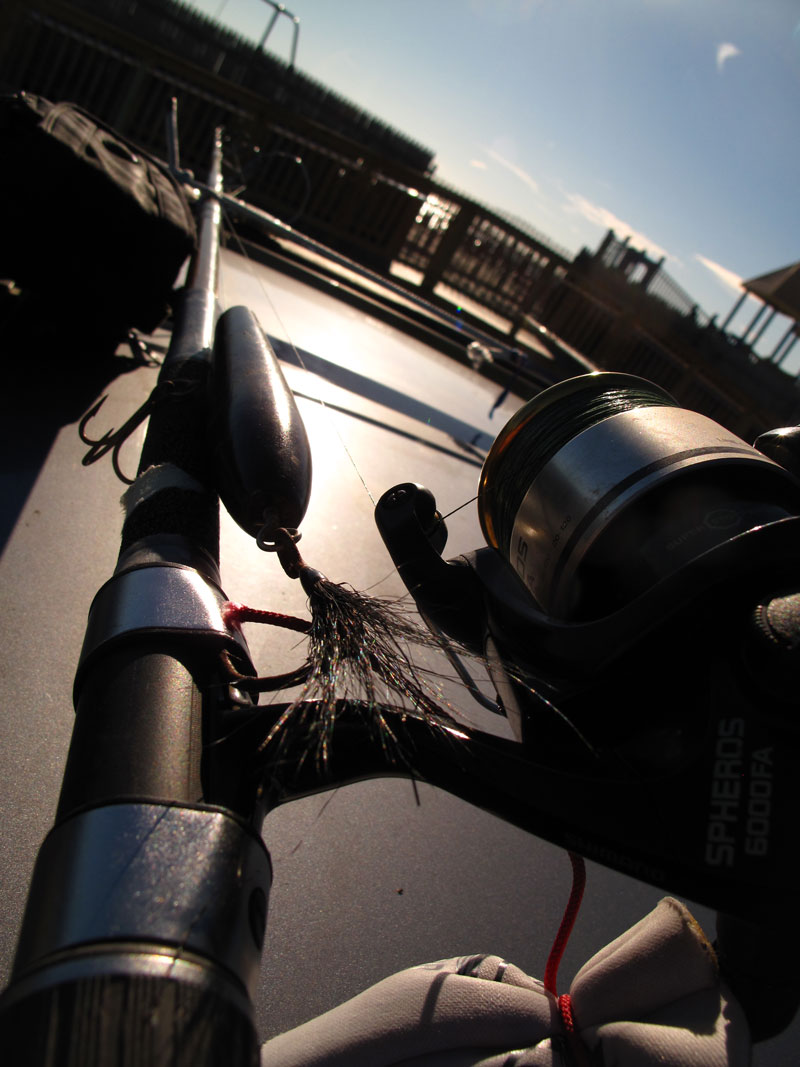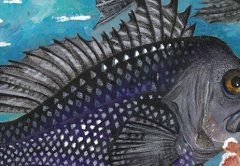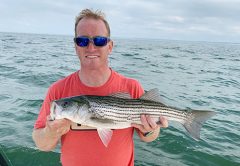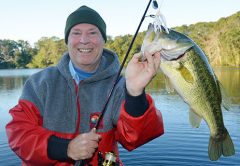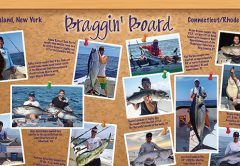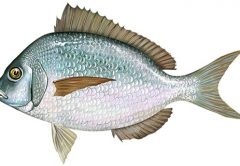By Zach Harvey
It’s 2:35 a.m., Sunday night, and I’ve been sitting at my computer for no less than three full hours trying to figure out how to raise a few current fisheries issues that warrant immediate public scrutiny at a time when any topic carrying the faintest whiff of national politics will trigger a fresh flood of toxic wrath from the two increasingly polarized ends of the spectrum. How do I level a fair criticism at President Trump’s Administration–or at the far left in environmental politics–when both sides are on high alert, coiled up and ready to melt the face off anyone with a dissenting opinion?
The whole exercise is starting to feel like running a marathon while two-dozen hornets build a nest in my boxer shorts.
For most of us, fishing’s what we do to put the veritable thunderhead of real-life bullshit a few miles astern of us, reground ourselves in the tangible world. Where we cast, the mission is simple–kill dinner–and there’s a predictable order to things that have run more or less the same for eons.
As the “Document1” cursor blinks the seconds away into deadline oblivion, nary a word on the screen, I do the only thing that makes sense. I launch out of my chair, pull on a sweatshirt, grab my headlamp, pliers, smokes, lighter, wallet, car keys, and a bottle of cold water, and rummage through the junk drawer for a Post-It note and a pen.
“Fishing. Back in about an hour. (It’s 3 a.m. now.) Love you both. XOXO, Zach/Dad”
I stick it to a kitchen chair, then create a “chair sculpture” to be sure they won’t miss the note.
Two minutes later, head congested with fluke, great whites, marine monuments, gray seals, black sea bass and at least two hurricanes, I roll up to the stop sign where my dead-end street meets the main drag. I click on my headlamp and rifle through a stack of CDs until I spot the familiar graphics of Hendrix’s “Axis: Bold As Love,” cue that up, turn on my headlights, and ease out into the wee-hours stillness.
I bought a rod and reel for small bucks about a week ago from a friend of mine. It’s an old custom surf stick, one of those super-whippy old fiberglass (probably E-Glass) blanks with the old foam fore- and split-butt grips, guides from fully two decades before braided line forced innovation in those components. Armed with a Penn 450SS, the 8-foot set-up weighs just an ounce or two less than my hickory-handled splitting maul. But none of its drawbacks–or the old blanks’ limitations in the sensitivity department–have diminished my kid-on-Christmas-Eve excitement to take ‘er for a test drive.
As I tack toward suitable water, the pounding in my temples starts to ease for the first time in 48 hours. I’ve learned this lesson before–enough times that I’m wondering whether it’s the thing I’m doomed to repeat endlessly a la Greek mythology, until I get it right. There’s a reason it’s one of the core truths in more than one major religion: The harder you try to muscle your way toward enlightenment, the further away enlightenment becomes.
Or: The harder I try to twist ideas into submission, pound the ill-fitting pieces into an argument, the worse things get. Usually, it’s only when I back-burner the whole wreckage-in-progress, focus my energy on something mindless, let my hands work on autopilot, that things will start to fall into place.
I pull into the turnoff, park, and hop out. Gazing across the roof of my car at the dark water and horizon beyond, I detach the bungee cords that lash my new weaponry to the racks. Rod in hand, I peer down into the shallows where a street light throws its orange glow on the advancing waves. A school of small bait, probably spearing, breezes along a few yards outside the break, and occasionally a small predator (squid I think) will dart through and send them scattering. Clearly, there’s life here. But, from the look of things, it doesn’t seem like any predators–bass or blues–know this.
Fortunately, tonight’s hair-brained exercise requires no cooperative striped bass or bluefish, just a little overhead light, calm seas, and not another human in sight.
An added bonus: Preliminary observations have made it clear no one in the fisheries management world has come here tonight to discuss the future of our besieged fluke resource. No one from the chamber-of-commerce realm has shown up to discuss “mitigation” strategies for the great whites along outer Cape Cod beaches, where Marine Mammal Protection Act provisions have brought the seal herd into a state of staggering overpopulation.
I trudge down to the water, find what looks to be a solid patch of gravel in which to plant my flip-flopped feet. After unhooking the rear treble of my well-worn Gibbs Pencil Popper from the reel seat, I give leader and knots a quick inspection, then check to see that the spool, which I loaded with fresh 20-pound braid a couple nights ago, is packed on tightly and evenly.
The last two falls, in my second act as a leisure-oriented fisherman, I’ve been working to apply various lessons I picked up from friends and colleagues who pursued surfcasting the way I did fishing from boats.
Notably, I’ve spent hundreds of hours refining pencil-popping technique. Indeed it was that lure that put me on a long search for the rod I’ve just picked up.
For the uninitiated, bringing a pencil to life requires constant, rapid, push-pull action created with the rod hand, and a s-l-o-w, steady retrieve with the other. It’s labor-intensive under ideal conditions, an exercise in masochism when your gear’s stiff and heavy. The first challenge is mastering the walking/gum-chewing coordination between rod and reel hands.
The method also requires a sense of the lure’s position and running speed, and some attention to line-lay on the spool. Few methods can rival the wild side-to-side slashing and darting action of a pencil for wind-knot production. If you don’t keep your wits about you, you’ll spend half your casting session picking horrible snarls out of your running line.
For all its challenges, pencil-popping is one of the few surface-plugging tactics that will pull big, wary bass to the surface, even from significant distances, in deep, hard-running water–one reason many sharper surfmen use pencils as go-to “search” plugs.
Having made the mistake before of buying a rod before I fully understand which jobs I’ll need it for, or how well it will match up against my bass-ackwards ways of doing things, I’ve taken my time choosing this one, which is the logical conclusion of a hunch I’ve been working out for a couple seasons, namely that I’ll do better with my next plug rod if I go through technology in reverse, rather than going state-of-the-art, buying a $400 composite stick.
My first cast lands a bit shorter than expected. But the plug comes to life immediately, and the action, highly erratic, splashy, and noisy as hell, is excellent.
The key is that the stick’s long, slow bounce requires w-a-y less energy than any other rod I’ve used, and as the plug comes back into the wash at my feet, I’m psyched to note the shorter stick lets me work the plug all the way home. The composite rods I’ve used in the past were 10- to 11-footers that made it hard to maintain proper action in close quarters–a major drawback, considering how often fish will strike inside one rod-length, literally right at my feet.
By the third cast, It’s becoming clear that one trade-off for my new rod’s easier action will be casting distance. No way around it: Blank construction and guide innovations the last decade or so have delivered quantum gains in the energy-transfer department, adding serious yardage to casting range.
A dozen casts later, I’m drifting into autopilot, and all that tension that had jacked my shoulders up next to my ears back at my desk is dissipating into the black distance. By the time I strap the set-up back on my roof rack 15 minutes later, I’m struggling to remember why I’d gotten myself into such a dither over the latest scattering of bad news for fish and fleet. Like it or not, another winter’s coming. I’ll get around to it soon, hopefully when we’ve all, as a country, unloaded some piss and vinegar, unclenched our jaws and fists.
That’s the lesson tonight and every other night: Whatever the two-week or five-year prognosis, the thing with fishing is that you go anyway, go often, and keep your focus nearer your feet than the horizon. Going begets more of same. More of same bends the rod. Bent rod makes fisherman happy. And if not for happiness, why the hell keep doing this, anyway?
By Zach Harvey

